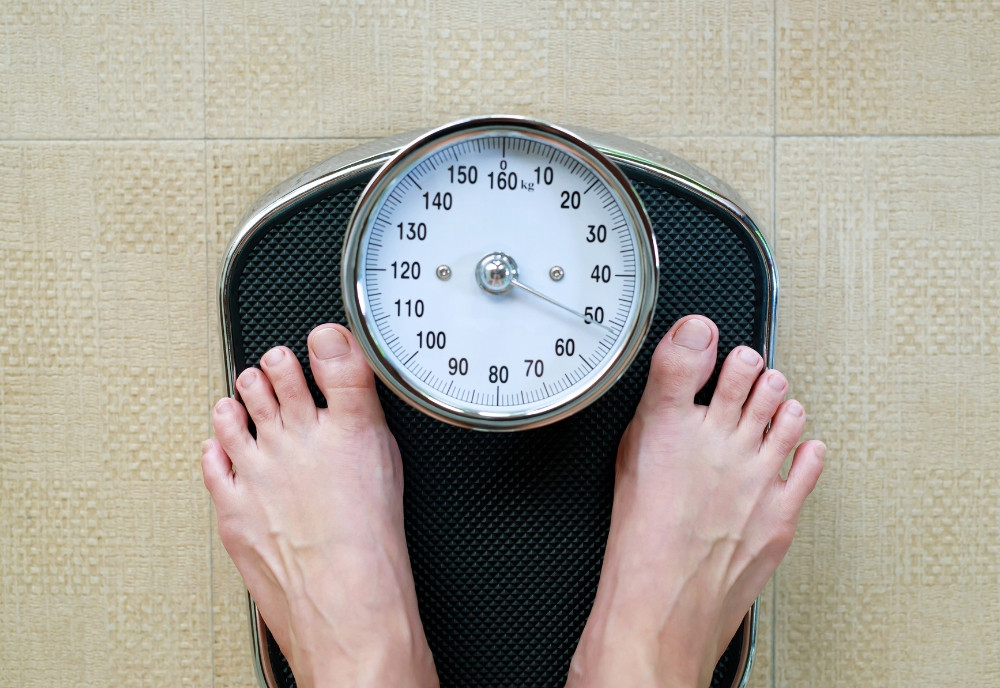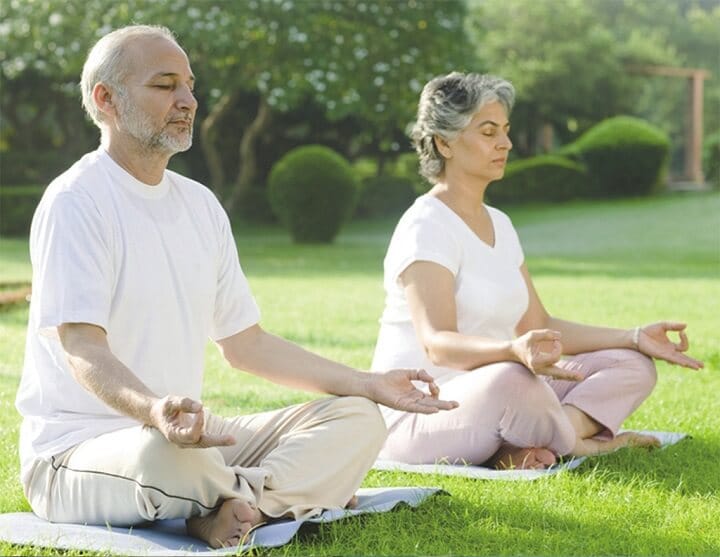As we age, all of our body systems weaken, causing our health to decline significantly, increasing the risk of many diseases, including cardiovascular disease. Therefore, one of the things to pay attention to at this age is how to take good care of your health.

How to take care of cardiovascular health in the elderly
As we age, in addition to changes in bodily functions, some habits and improper care can easily lead to weight gain. Meanwhile, weight gain is the cause of many risks of diseases such as diabetes, high blood pressure, high cholesterol and metabolic syndrome - all of which can lead to arterial damage, a sign of many different types of heart disease.
Therefore, the older you are, the more you need to pay attention to the following habits:
1. Don't sit in one place for too long
Many studies have shown that sitting for too many hours is also a risk factor for heart disease due to changes in the body's physiological functions.
Specifically, when sitting for a long time, the body does not move enough, causing blood to not circulate effectively, leading to blood stasis, high blood pressure, increasing the possibility of blood clots. If this condition persists, it can cause cardiovascular diseases, typically coronary artery disease, stroke, and even heart failure.

In addition, sitting a lot also increases the risk of being overweight and obese, affecting cholesterol and blood sugar levels, which can cause type 2 diabetes as well as related cardiovascular diseases.
Therefore, get up and move around as soon as possible, especially the elderly, no matter what situation you are in, such as sitting at work or watching TV.
2. Regularly monitor cardiovascular health indicators
Many times, your body can give you warning signs of heart health that are hard to spot without monitoring your health indicators. For example, high cholesterol, high blood sugar, or high blood pressure may not have obvious symptoms, but without regular checkups, you may not realize the severity of the problem.
On the contrary, regularly monitoring health indicators can detect health abnormalities early, thereby adjusting diet, lifestyle habits or using medication to control these risk factors, minimizing the possibility of cardiovascular disease.
3. Take time to eat at home
Eating at home instead of eating out will help us control the quality of food from the origin, quality to the ingredients used, ensuring that the food is both delicious and free of chemicals as well as the use of grease, spices or additives.

In addition, cooking for yourself can adjust your diet according to your body's nutritional needs, avoid fried foods, stir-fried foods with lots of oil, reduce salt, sugar, or processed foods, and avoid diseases related to unhealthy eating such as obesity, diabetes, or cardiovascular disease.
Therefore, although eating out can be convenient, eating at home is the best way to create healthy, sustainable eating habits that protect your health.
4. Maintain weight at the most suitable level
Maintaining a healthy weight not only helps reduce the burden on your heart, but also plays an important role in controlling other risk factors such as high blood pressure, high cholesterol, diabetes, and chronic inflammation – all of which are determinants of heart health.

A healthy diet, combined with regular exercise, will help you maintain an ideal body weight, protect your heart and reduce your risk of cardiovascular disease.
5. Should apply stress reduction properly
To reduce stress, many people apply the wrong methods from eating, taking medicine, drinking alcohol, smoking, etc. These methods bring temporary effects, but in the long run, they have a negative impact on the nervous system as well as the risk of cardiovascular diseases.
Therefore, instead of reducing stress with the above methods, try yoga as well as other healthy forms of exercise to effectively manage stress while still ensuring the best health.

6. Pay attention to sleep quality
Studies have shown that people who have the habit of sleeping less than 6 hours per night or suffer from chronic insomnia have a high risk of diseases such as atherosclerosis, high blood pressure, coronary artery disease, and even stroke.

The reason is that when you sleep, your heart and other organs in your body rest and regenerate, helping your circulatory system function properly. If interrupted, your airways will be blocked for a short time, which can have negative effects on your cardiovascular system.
Therefore, to protect cardiovascular health, a full 7-8 hours of sleep and deep sleep are essential to help reduce heart stress, stabilize blood pressure and maintain cardiovascular functions at normal levels.
7. Learn the warning signs of heart attack and stroke
Knowing the warning signs of heart attack and stroke is extremely important for timely detection and treatment, helping to minimize risks and increase the chances of survival. Heart attack and stroke are two of the most serious medical conditions, often occurring suddenly and can have serious consequences if not treated promptly.
For a heart attack, warning signs may include severe chest pain or a feeling of heaviness in the chest, radiating to the arm, shoulder, back or jaw, accompanied by shortness of breath, nausea and fatigue. Meanwhile, a stroke often has signs such as sudden weakness on one side of the body, difficulty speaking or slurred speech, loss of balance, severe headache. If detected within the “golden hour” (the first 3-4 hours), the patient can receive better treatment and recovery.
Early recognition of these symptoms not only helps you protect your health but also helps your loved ones receive timely emergency care, avoiding serious heart damage.
8. Consider medication to control blood pressure
Older adults are not immune to high blood pressure. Antihypertensive drugs can help reduce pressure in the arteries, improve blood circulation, and reduce the risk of atherosclerosis. On the other hand, high blood pressure, if left uncontrolled, can increase the burden on the heart, damage blood vessels, and lead to serious problems such as coronary artery disease, stroke, and heart failure.

It can be seen that this is an important measure in the prevention and treatment of cardiovascular diseases. However, the use of drugs should be considered for use according to the correct indications and closely monitored by a doctor to reduce the risk of cardiovascular diseases, maintain stable heart health and improve the quality of life.
Seek care and nursing services
Cardiovascular health care is an important factor in protecting and maintaining long-term health, especially for the elderly. Professional nursing care services Hio Care is a comprehensive solution to prevent and treat cardiovascular problems effectively.
With a team of 100% caregivers with professional qualifications and experience, the care plan is designed by medical and nutrition experts, helping to optimize cardiovascular health, ensuring patients receive appropriate care.
In addition, the team of caregivers here not only ensures physical care but also spiritual companionship, helping the elderly feel comfortable and secure.

In particular, professional nurses will closely monitor the patient's health indicators, continuously update the health status with family members, creating peace of mind for the whole family. Palliative care packages combined with doctors and support services help patients feel more comfortable, while reducing anxiety for relatives.
Seeking care and nursing services is a smart decision, protecting cardiovascular health and providing the best quality of life, preventing cardiovascular disease for the elderly.




